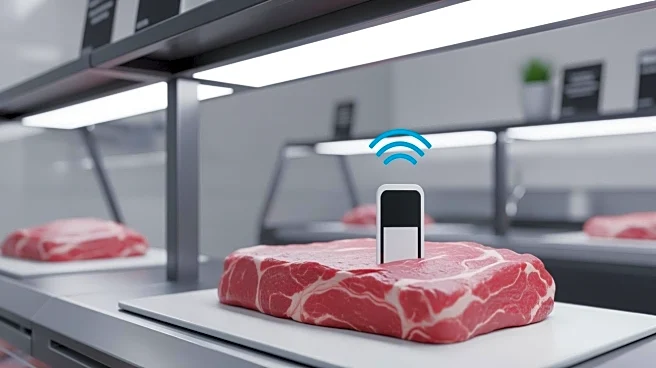What's Happening?
Walmart is deploying RFID-enabled labels in its meat, bakery, and deli departments to improve inventory tracking and management. This initiative, in collaboration with Avery Dennison, aims to address the
operational challenges RFID technology faces in cold and moist environments. The new labels will allow Walmart associates to track inventory more efficiently, ensuring products are stocked and fresh. The technology also provides digital use-by dates, aiding in better product rotation and markdown decisions, ultimately reducing unsold food waste. This move is part of Walmart's broader sustainability goals, which include reducing global operational food loss and waste intensity by 2030.
Why It's Important?
The implementation of RFID technology in Walmart's fresh food departments represents a significant advancement in retail inventory management. By enhancing the accuracy and speed of inventory tracking, Walmart can reduce waste and improve product availability, directly benefiting consumers with fresher products. This initiative also aligns with Walmart's sustainability objectives, potentially setting a precedent for other retailers to adopt similar technologies. The collaboration with Avery Dennison highlights the importance of innovation in achieving environmental goals, which could influence industry standards and practices.
What's Next?
As Walmart continues to roll out RFID technology across its stores, the company may expand its use to other departments, further enhancing inventory management and sustainability efforts. The success of this initiative could lead to broader adoption of RFID technology in the retail sector, encouraging other companies to invest in similar solutions. Stakeholders, including environmental groups and industry leaders, will likely monitor the outcomes closely to assess the impact on waste reduction and operational efficiency.









